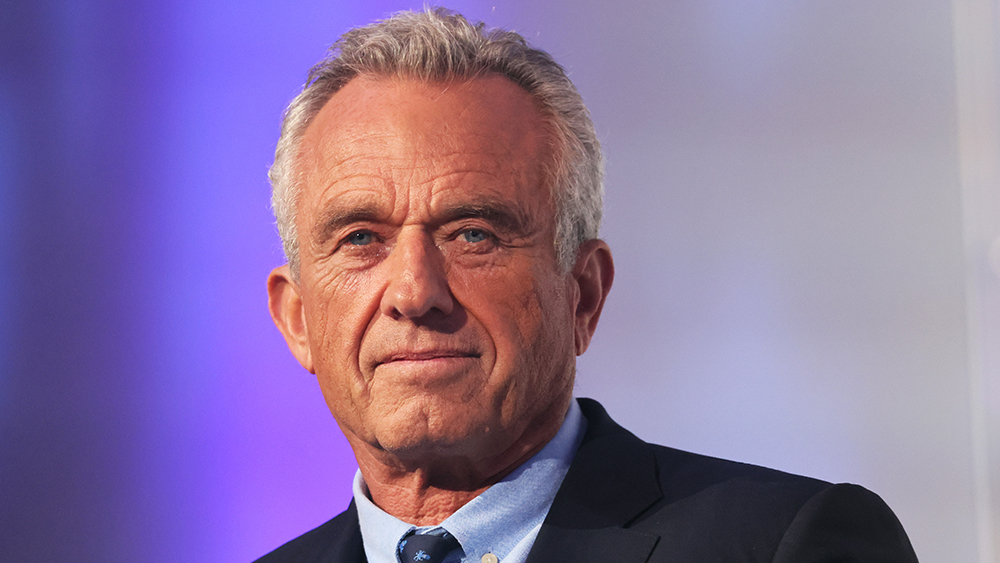The biggest loser? Study reveals hidden dangers of Ozempic and other GLP-1 weight loss drugs
08/07/2025 / By Ava Grace

- A study in BMC Medicine reveals that patients discontinuing GLP-1 weight loss drugs (e.g., Ozempic, Wegovy) regain nearly half their lost weight within eight weeks, with continued gains for about 20 weeks.
- These drugs suppress appetite and slow digestion but lose effectiveness immediately after discontinuation, leading to intense hunger and metabolic imbalances – making long-term success unlikely without indefinite use.
- Weight cycling (repeated loss and regain) may cause “metabolic adaptation,” slowing metabolism and increasing fat storage efficiency, potentially leaving patients worse off than before treatment.
- The study advocates addressing root causes through liver support, gut health, blood sugar stability, toxin elimination and stress management rather than relying on pharmaceutical interventions.
- Pharmaceutical companies downplay risks like rebound weight gain, while healthcare systems favor pills over lifestyle changes despite evidence that holistic approaches yield more lasting health benefits.
The promise of effortless weight loss through injections is colliding with sobering science. A new study has found that patients who stop taking popular weight loss drugs – including blockbuster GLP-1 medications like Ozempic and Wegovy – experience rapid weight regain, often within just eight weeks.
The meta-analysis published July 22 in BMC Medicine examined data from 2,400 participants across 11 global trials. Researchers discovered a consistent timeline of weight regain after patients discontinued anti-obesity medications (AOMs).
Patients who took the AOM tirzepatide for 36 weeks regained nearly half their lost weight after switching to a placebo. Similar rebounds occurred with other GLP-1 drugs, suggesting a systemic flaw in pharmaceutical weight management. (Related: The dark truth behind Ozempic and Wegovy: Big Pharma’s profit-driven gamble with your health.)
At four weeks post-treatment, some weight loss remained. But by eight weeks, the scale began creeping upward – with gains continuing for an average of 20 weeks before stabilizing.
The study’s findings expose a troubling cycle of dependency that pharmaceutical companies have downplayed. For millions of Americans seduced by quick-fix solutions, the findings raise urgent questions about the long-term consequences of these AOMs.
GLP-1 drugs manipulate the body’s natural hunger signals by targeting receptors in the pancreas, gut and brain. They slow digestion, suppress appetite and trick the brain into feeling full.
But when patients stop taking them, the effects vanish almost overnight. Hunger surges back, often stronger than before. Metabolism, artificially suppressed by the drugs, struggles to recalibrate.
Anti-obesity medications: The hidden metabolic damage
Beyond rapid weight regain, researchers warn of deeper metabolic harm. Weight cycling – repeated loss and regain – trains the body to resist future weight loss by slowing metabolism and increasing fat storage efficiency.
The study found that those who lost the most weight on these drugs also regained the most afterward, suggesting that extreme initial results may trigger an even fiercer metabolic backlash. This phenomenon, known as “metabolic adaptation,” could leave patients worse off than before they started treatment.
However, there is hope. The study highlights alternatives that work with the body rather than against it:
- Liver support through cruciferous vegetables and detoxifying herbs like milk thistle can aid metabolic function.
- Gut health restoration achieved with fermented foods and fiber-rich diets nurtures beneficial bacteria crucial for appetite control.
- Blood sugar stability maintained through protein-rich meals and low-glycemic foods prevents insulin spikes that drive cravings.
- Toxin elimination via sweating through exercise or saunas helps purge chemicals stored in fat that disrupt metabolism.
- Stress management through adaptogens like ashwagandha and mindfulness practices rebalances cortisol levels that promote belly fat.
Pharmaceutical companies have aggressively marketed these drugs as miracle solutions while glossing over risks like rebound weight gain and metabolic dysfunction. Meanwhile, insurance companies and healthcare systems push pills over lifestyle changes despite evidence that diet, exercise and detoxification yield more sustainable results.
Visit FightObesity.news for more similar stories.
Watch this video about the dangers of weight loss drugs like Ozempic and Wegovy.
This video is from the Daily Videos channel on Brighteon.com.
More related stories:
The hidden dangers of using weight loss medications like Wegovy and Mounjaro.
Sources include:
Submit a correction >>
Tagged Under:
fight obesity, GLP-1 drugs, harmful medicine, health science, metabolic adaptation, metabolic disorders, obesity, Ozempic, Prescription drugs, prescription warning, research, slender, Wegovy, weight gain, weight loss, weight loss drugs, weight management
This article may contain statements that reflect the opinion of the author





















